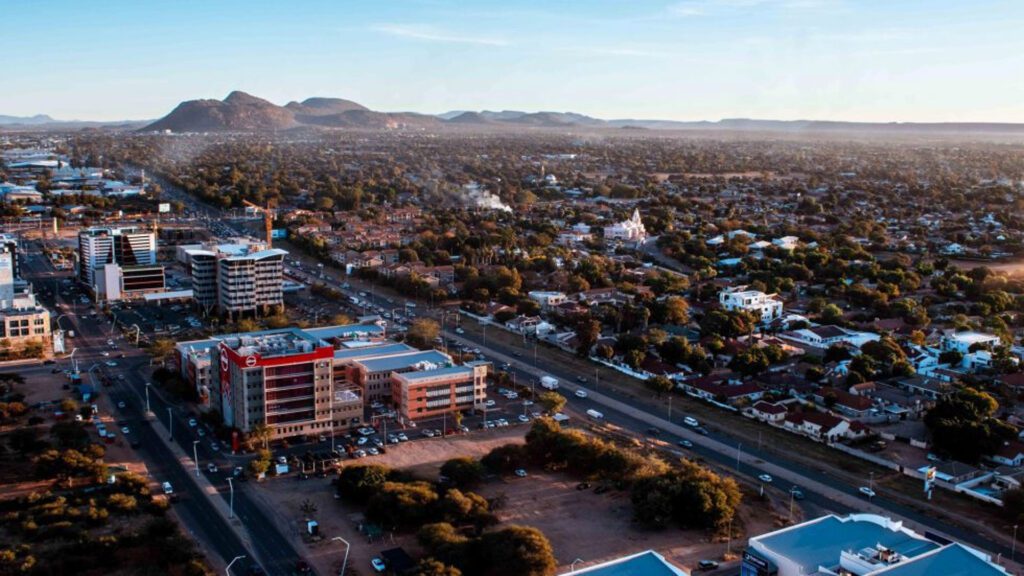After decolonization, most African states came under the control of communists, socialists, and various other dictatorial governments, from Tanzania to Guinea to Zimbabwe.
Whether in Africa or elsewhere, socialism has repeatedly failed to create economic prosperity. Instead, it has led to a combination of poverty, corruption, hyperinflation, and rampant authoritarianism.
Socialist policies have held back potential in Africa
At a time, the country of Guinea was expected to become one of the richest nations in Francophone Africa. The country holds one quarter of the world’s bauxite reserves and abundant deposits of gold. However, due to the government’s socialist policies, Guinea was spending one third of its foreign exchange earnings on food imports alone by 1984.
Socialist Tanzania was similarly gripped by a food crisis in 1981, when the production of basic crops such as maize and wheat dropped by almost 50 percent. In Zimbabwe, under the rule of Robert Mugabe and his socialist ZANU party, hyperinflation famously wreaked havoc. As such, the national currency became worthless, with US$1 netting you a cool Z$758,530,000,000.
Unemployment and poverty also increased substantially, and Mugabe’s policies continue to affect Zimbabwe to this day. As of 2017, when Mugabe lost his grip on power, Zimbabwe’s poverty rate stood at around 81 percent.
But while the influence of socialism spread across most of Africa, there was one nation in particular that did not take the socialist path. That country was Botswana.
Botswana’s state of affairs upon independence was far from ideal
Botswana, formerly known as the Bechuanaland Protectorate, gained its independence from Britain in 1966, with Sir Seretse Khama being elected as the country’s first president.
Seretse Khama was a controversial figure who was criticized for not taking the path of socialist economics as many other African leaders did. He also faced criticism from both the British and South African governments at the time due to his interracial marriage.
In terms of its economy, to say that Botswana was not in a good position by the mid-1960s would be an understatement. Indeed, Botswana was the second poorest nation in the world at that time. The country’s GDP per capita was only around $89, and despite Botswana’s land area being larger than that of Spain, it only had a total of 12 miles of paved roads.
Furthermore, Botswana is landlocked, which further complicates its position in international trade. Landlocked nations typically struggle economically when compared to similar countries that have access to the world’s oceans.
However, against all odds, Botswana went from one of the poorest nations in the world to one of the fastest growing economies. How this was achieved has a lot to do with Botswana embracing capitalism.
A triumph of capitalism that defied the odds
While other African governments preferred collectivism and imposed socialist economic policies that led to poverty and corruption, Botswana instead chose pro-market policies such as low income tax, low corporate tax, and low tariffs.
Botswana’s GDP per capita grew from only $89 in 1966 to $2,945 in 1990, an immense improvement by any measure. By 2018, Botswana’s GDP per capita stood at $8,279, in stark contrast to neighboring Zimbabwe’s GDP per capita of only $1,352.
From 1965 to 1995, Botswana recorded the fastest rate of economic growth in the world.
Indeed, Botswana represents one of the many examples of systems with greater economic freedom outperforming the less free socialist systems. While people often criticize capitalism as a system for greed, it is important to consider how the socialist system allowed greedy and corrupt government figures to get rich at the wider population’s expense.
Today, while still flawed, Botswana is one of the most free and stable countries on the African continent. It is also one of the few middle income countries in sub-Saharan Africa. Furthermore, as greater government control over the economy in many parts of the continent has led to mismanagement and widespread corruption, Botswana, with its greater economic freedom, has frequently been ranked as the least corrupt country in all of Africa.
The success of capitalism in Africa is not limited to Botswana
It’s easy to see Africa as a land of socialist corruption and war, with Botswana being a lone outlier. But other African countries are adopting similar stances.
Mauritius is another country that has benefited greatly from broadly free market economic policies. The country has no capital gains tax, low regulation, and ranks first in Africa for ease of doing business, standing in 13th place globally, ahead of countries such as Australia, Germany, and Canada.
This has made Mauritius one of the best performing economies in Africa with a GDP per capita of $11,209 and a gross national income of $425,876 in 2018. The relative economic success of Mauritius stands in contrast to many other African nations that have far more natural resources, much like how Hong Kong became a beacon of prosperity while China struggled.
Kenya and Tanzania share a border, became independent around the same time, and are a similar size in both population and land area. Yet, Kenya has a higher GDP per capita, higher GNI per capita, and greater purchasing power.
This is because Kenya eventually became a more market-oriented economy while Tanzania was subject to a socialist dictatorship that nationalized private companies and forced people to work at collective farms.
If more African nations start to embrace free markets policies, they too can replicate the success of countries like Botswana or Mauritius in escaping poverty towards economic growth and increased prosperity.
For more content on economics, be sure to check out our video playlist on free markets by clicking on the button below.
This article was first published on the Students For Liberty website.
This piece solely expresses the opinion of the author and not necessarily the organization as a whole. Students For Liberty is committed to facilitating a broad dialogue for liberty, representing a variety of opinions.
Source link : https://www.learnliberty.org/blog/botswana-triumph-of-capitalism-in-africa/
Author :
Publish date : 2021-11-12 08:00:00
Copyright for syndicated content belongs to the linked Source.
